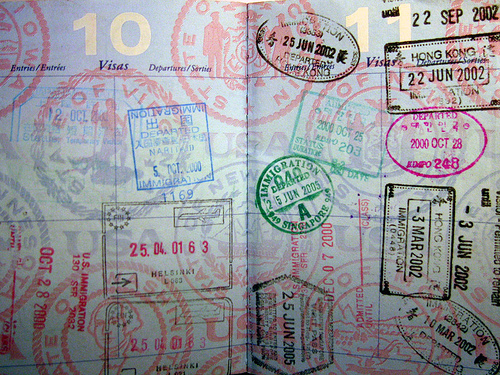by Shannon C. Kelly
I would like to dispel a myth for those of you interested in gaining international work experience – it can be easy AND affordable. How? By volunteering abroad. There are a TON of programs out there which you can volunteer through – many vary in their fee structure and what is included in the fee, but I promise (cross my heart…stick a needle in my eye) it is possible to find one appropriate for your budget and areas of interest. Idealist.org has a Smörgåsbord of resources to jump start your search.
Why am I willing to potentially stick a needle in my eye? Because I know first-hand it’s possible since I volunteered abroad this past summer. The whole trip cost me under $2,000 (air fare, spending $, room & board) and I KNOW I could have done it for even less. I found my particular program through Volunteers for Peace (www.vfp.org) thanks to our annual International Opportunities Fair. VFP is an international volunteer exchange organization. They have partners all over the world who help place volunteers at International Voluntary Service projects, also known as international workcamps.
I searched VFP’s directory for programs in the UK because I have always wanted to go. I found an opportunity to volunteer at a festival (Think: event management experience) outside of Bath, England – Monkton Combe in Avon. Which brings up another advantage of volunteering abroad – getting off the beaten tourist path. I met university students and other young people from all over the world (Turkey, Italy, Poland, Japan, Greece, + more), but I also met fascinating individuals older than me who had great stories and advice to share for my own ambitions. (Think: networking is not just for when you need a job).
So what’s the catch? When you volunteer abroad, you are not taking a traditional vacation. You agree to work a certain number of hours in exchange for your room and board (of course specifics vary by program, location, etc). I worked 6 hours a day and helped run the festival by setting up rooms for workshops, coordinating materials for the attendees and answering questions about specific events (Think: bullet points on a resume). It’s not all work though. I had free time to attend workshops at the festival (lessons on Brazilian Forró) or to hang out with my new friends from Italy or Greece. All in all, I gained valuable experience for my resume, extended my network, and got off the beaten path – even learned a new dance I know I would not have otherwise.
Whether you want to teach children, learn a foreign language, rebuild walls, help the environment, steward at a festival – there’s a program for that. (Think: iPhone’s “there’s an app for that”). And if you do your homework, you can find one appropriate for your budget. I did and I can’t wait to volunteer abroad next summer.
I’ll be posting more about volunteering abroad as it relates to gaining work experience. And sharing stories from friends around the world. If you’d like to share yours, leave a comment!




